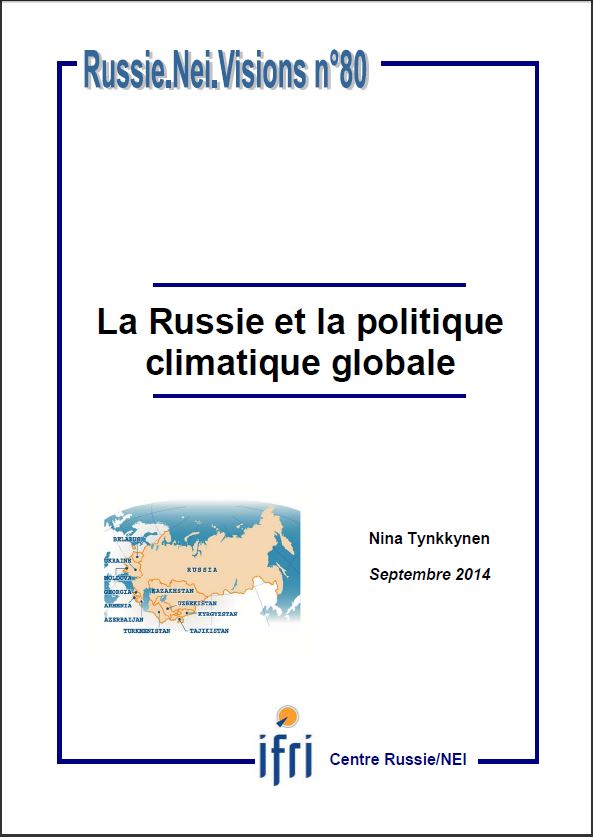Russia and Global Climate Politics

Russia, as the fourth largest greenhouse-gas emitter in the world, and a major supplier of fossil fuels causing these emissions, played a decisive role in the enforcement of the Kyoto Protocol, the main instrument of global climate policy so far.
Domestically, serious political measures to combat climate change have yet to be taken. Thus, Russia’s performance in global climate politics indicates that goals other than genuinely environmental ones, such as political or economic benefits, are the main motivation of Russia’s participation. Also, Russia’s national pride and its status as a great power are at stake here. This paper scrutinizes Russia’s stance in global climate politics, offering an overview of Russia’s engagement in international climate politics and its domestic climate policy. In the second part of the paper, Russia’s engagement in global environmental politics is discussed in the context of Russia’s world status and the great-power concept. Accordingly, the paper aims to shed light on how and why Russia behaves in global climate politics in the way it does. This may be of interest to actors in international environmental politics in general, and relevant to future climate negotiations in particular.
Download the full analysis
This page contains only a summary of our work. If you would like to have access to all the information from our research on the subject, you can download the full version in PDF format.
Russia and Global Climate Politics
Related centers and programs
Discover our other research centers and programsFind out more
Discover all our analysesThe Caspian Sea as an Emerging Energy Hub : Potentials and Limitations
This report analyzes the prospects of the Caspian Sea region — and its key actors except for Russia and Iran — becoming an important energy hub serving the needs of the European Union (EU).
The European Union's Strategic Test in Georgia
The political crisis brewing in Georgia is of an existential nature for the country. What is at stake is Georgia's future as a democratic and sovereign European nation (EU).
Commanders of Putin's Long War: Purged, Reshuffled and Disgruntled
The trend of reshuffling the Russian top military command in the course of a fast-evolving and far from successful war has progressed unevenly both across the Armed Forces’ structures and in time. The rationale for and timing of the abrupt cadre decisions made by Commander-in-Chief Putin often defy logical explanation, and the rare official clarifications are no more informative than the usual information blackout.
Russian Military Manpower After Two and a Half Years of War in Ukraine
In addition to a military victory in Ukraine, the Russian leadership is planning to build up sizable troop formations for a possible conflict with NATO in the Baltic region and the Kola Peninsula. In particular, current plans aim for the military manpower to grow by about 350,000, reaching a total of 1.5 million soldiers and commanders. In the context of the current conflict in Ukraine, this cannot be accomplished without a new wave of mass mobilization.









